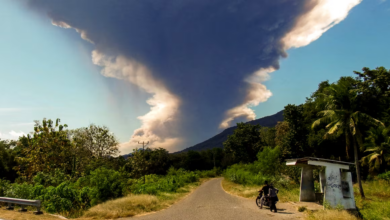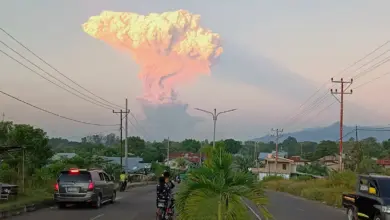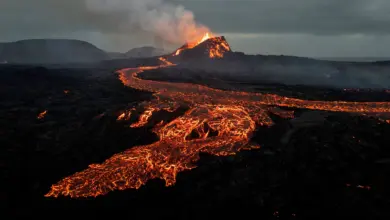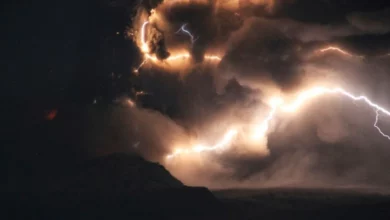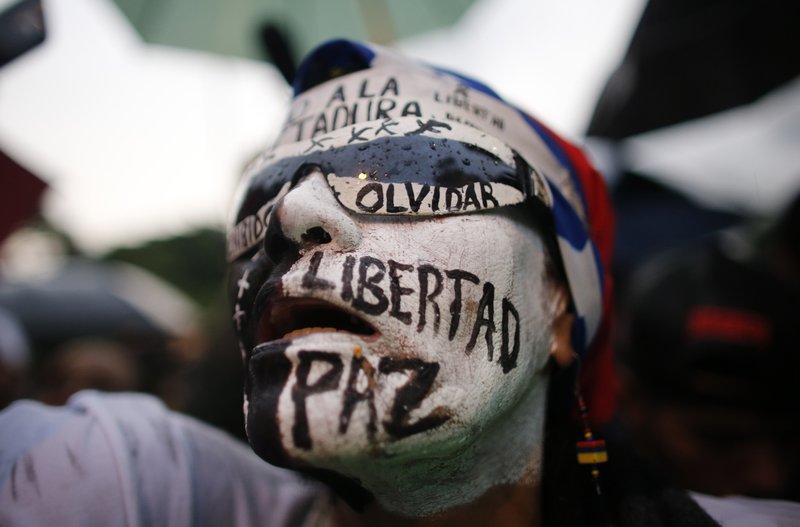
The evacuation of a Vanuatu island was continuing on Monday even after scientists said an erupting volcano had stabilized.
A makeshift fleet of vessels ranging from tiny water taxis to large landing craft was moving thousands of people from Ambae island to nearby islands in the Pacific archipelago.
Vanuatu officials last week ordered the complete evacuation of the island’s 11,000 residents, fearing the Manaro volcano might blow in a major eruption.
But Brad Scott, a New Zealand volcanologist who is helping in Vanuatu, said the volcano had stabilized over the last few days. He said lava is continuing to erupt from Manaro but is no longer interacting with water as it was in the volcano’s earlier and more explosive stage.
Government spokesman Hilaire Bule said the latest scientific information it had received was that the volcano was stable and no longer a threat. But he said government ministers would need to meet and agree to lift the evacuation order before the exodus would be stopped or reversed.
He said ferries and commercial ships were helping move people from the island and most should have left by Monday. He said about 7,000 people were making the 100-kilometer (60-mile) ocean trip to the island of Espiritu Santo, another 3,000 were being transferred to Pentecost island and about 1,000 to Maewo island.
Ambae resident Lilian Garae said she, her husband and three children were at home packing after being told they would be moved at 6 a.m. Tuesday to Maewo. She said they would have to leave behind their animals, including a pig and three cows, as well as books and belongings. She said they had no family on Maewo.
“I’m worried about walking away from the village and the animals and everything in our homes, because we are just leaving them behind,” she said.
Garae said the volcano was no longer making the booming noises it had last week and was emitting less steam and ash. She said officials had told her she needed to be prepared to leave for two or three weeks.
The ash could be smelled in the air and was polluting water supplies, said Joe Cropp, a spokesman with the International Federation of the Red Cross who has been helping on Ambae.
He said people were leaving with what they could carry and making the half-day boat journey, in some cases with 400 others in the military-style landing vessels and at other times with just a couple of dozen others in the zipping water taxis.
He said the evacuation seemed to be progressing well, although some people were afraid of what awaited them on the other islands. He said on Espiritu Santo, people were being housed in churches, schools and tents.
“Their main fear is they won’t be able to return home,” he said.
The government has deployed about 100 police officers to Ambae to prevent looting, and Cropp said they had a noticeable but low-key presence there.
Cropp said most people on Ambae live a subsistence lifestyle by farming and fishing, and few own cars to traverse the dirt roads. Many people live in tin or thatch huts, he said, with perhaps one brick building per village.
Vanuatu’s government says the evacuation will be completed by Friday and has set aside 200 million vatu ($1.9 million) for the effort. Other countries including Australia and New Zealand are contributing money and supplies.
Ambae island is about 400 square kilometers (154 square miles) and has long been volcanically active. A previous eruption in 2005 forced about 3,300 residents to temporarily leave their homes and relocate elsewhere on the island.
Ambae is one of about 65 inhabited islands in Vanuatu, which is home to 280,000 people. The nation is prone to natural disasters, with a half-dozen active volcanoes as well as regular cyclones and earthquakes. It sits on the Pacific’s “Ring of Fire,” the arc of seismic faults around the Pacific Ocean where earthquakes and volcanoes are common.

